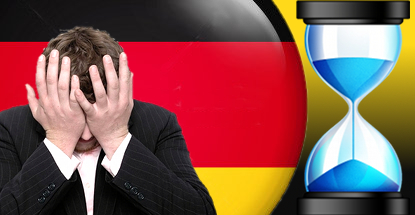 As expected, the launch of Germany’s regulated online sports betting market is facing a lengthy delay after failed applicants mounted a legal challenge of the licensing process. Earlier this month, the Hesse Ministry of the Interior issued 20 provisional sports betting licenses following a two-year-long vetting process that was plagued with difficulties. The official licenses were to be issued Thursday (18) but this was scuttled after a dozen or so unsuccessful applicants filed their legal protest of the convoluted licensing process.
As expected, the launch of Germany’s regulated online sports betting market is facing a lengthy delay after failed applicants mounted a legal challenge of the licensing process. Earlier this month, the Hesse Ministry of the Interior issued 20 provisional sports betting licenses following a two-year-long vetting process that was plagued with difficulties. The official licenses were to be issued Thursday (18) but this was scuttled after a dozen or so unsuccessful applicants filed their legal protest of the convoluted licensing process.
The Administrative Court of Wiesbaden has temporarily blocked the issuance of the permanent licenses while it considers the appeal, which charges the Hessian ministry with failing to conduct the licensing process in a fair and transparent manner. According to German media reports, the disgruntled operators include Bet365, BetVictor, Lottomatica, Sportingbet, local betting outfit Tipico and Betclic Everest. The latter firm’s Bet-at-home subsidiary was one of the lucky 20 recipients but other Betclic brands weren’t as fortunate and the company clearly doesn’t like to see people playing favorites with its offspring.
Even some German politicians have rubbished the Hesse ministry’s conduct. Last week, Free Democratic Party (FDP) domestic policy spokesman Wolfgang Grelich said the ministry had “completely botched” the licensing process and called for the federal Interstate Treaty to be scrapped. Among the FDP’s problems with the Treaty are its “arbitrary” limit on the number of licenses and ongoing concerns that the Treaty is incompatible with European Union law.
Other pols are urging the northern state of Schleswig-Holstein to withdraw its support for the Treaty and resume its independent online gambling regime. The state had originally opted for a more liberal online scheme that included poker and casino verticals and placed no limits on the number of available licenses. Schleswig-Holstein issued a number of licenses before the state government changed and the new administration decided to join the other states in ratifying the Treaty.
